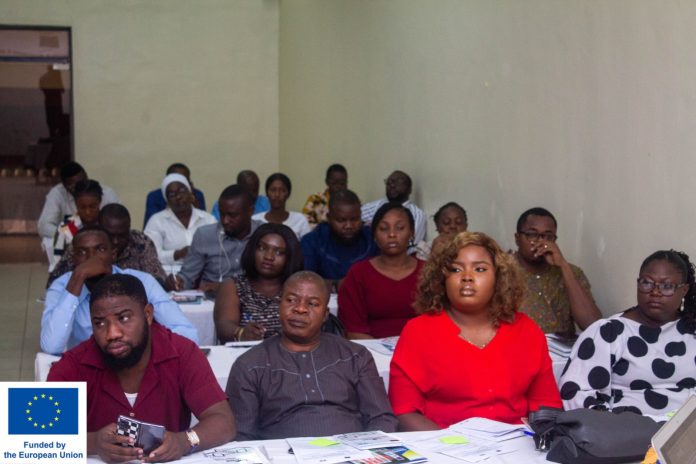In an effort to uphold the integrity of journalism and fortify democratic processes, the International Press Centre (IPC) Nigeria, in collaboration with the European Union, has conducted a training workshop in Akure, Southwest Nigeria.
The Two-day capacity building, themed “Credible Elections and Democratic Governance: Media Capacity Building on Combating Information Disorder,” convened journalists from the region to address the escalating challenge of information disorder and its ramifications on democratic governance.
The training, held on Wednesday, February 14th and February 15th, brought together journalists across media outlets in the South West region.
While addressing the Journalists in the training, the Executive Director of IPC, Mr. Lanre Arogundade, emphasized the pivotal role of journalists in combating information disorder, urging them to prioritize fact-checking and accuracy in their reporting.
Arogundade highlighted the dangers posed by disinformation, misinformation, and malinformation, emphasizing the need for journalists to adopt a discerning approach to news gathering and dissemination.
During the training, participants were equipped with essential tools and methodologies to verify information and detect falsehoods, particularly in the context of electoral processes.
He underscored the significance of holding leaders accountable post-election, urging journalists to scrutinize campaign promises and assess their implementation.
“The whole idea is that if somebody says he will do this, our duty is to remind them and to ensure that that is done,” remarked Arogundade, emphasizing the watchdog role of the media in ensuring transparency and accountability in governance.
Moreso, Mr. Martins Oloja, Managing Director and Editor-in-Chief of The Guardian Newspaper, emphasized the media’s responsibility in monitoring governance and holding leaders accountable.
Oloja urged journalists not to relent in reporting key issues and advocating for reforms, particularly in the realm of budgetary allocations and campaign promises.
“The media need to note that it is our responsibility to monitor governance and hold leaders to account for performance indicators.”
The training also addressed the imperative of press freedom in facilitating good journalism and democratic governance.
Participants discussed the importance of creating an enabling environment for journalists to practice without fear of reprisal or censorship.
However, Mr. Arogundade called on media stakeholders and the government to safeguard press freedom and protect journalists from attacks or intimidation.
“We believe that if journalists are better, if journalism is better, society will be better,” affirmed Arogundade, emphasizing the symbiotic relationship between a free press and a thriving democracy.




